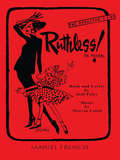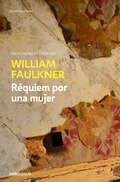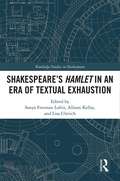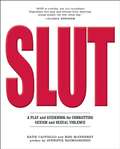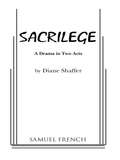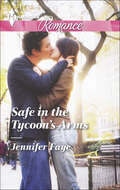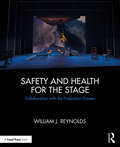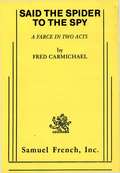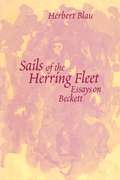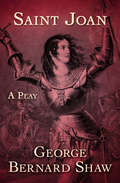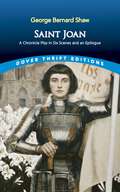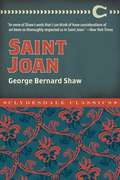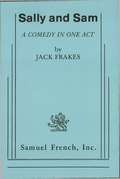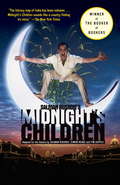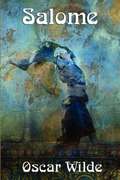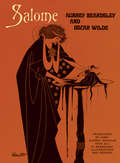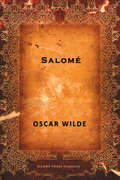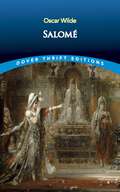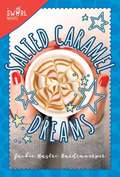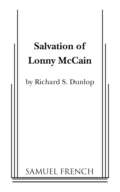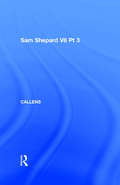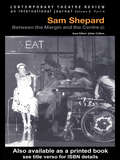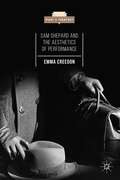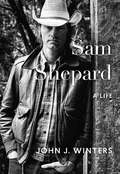- Table View
- List View
Ruthless!
by Joal Paley Marvin LairdMusical spoof . Book and Lyrics by Joal Paley. Music by Marvin Laird. . Characters: 1 male, 5 female or 6 female. Unit set. . Eight year old Tina Denmark knows she was born to play Pippi Longstocking and she will do anything to win the part in her school musical. Anything includes murdering the leading lady! This aggressively outrageous musical hit garnered rave reviews during its long Off Broadway run which opened with Brittany Spears in the title role. . "A spoof that has enough absurd plot twists and multiple identities to fill several old movies.... The fun comes from the sheer brazenness!"--- N.Y. Times. . "Hilarious.... It is beyond praise!"-- N.Y. Daily News. . "Wild amusement."-- N.Y. Post. . "A demented pleasure. Cheery, cheeky burlesque humor that evokes Your Show of Shows."-- N.Y. Newsday. . "Merry mayhem.... Malicious, delicious and a total joy."-- N.Y. Observer. . "Brilliant."-- USA Today. . "A wonderfully smart and funny send up of every Broadway brat from Gypsy to The Bad Seed ... loaded with campy wit and charm."-- Variety.
Réquiem por una mujer
by William FaulknerUna de las novelas capitales de Faulkner sobre la culpa y el destino, inspiradora de la adaptación teatral de Albert Camus.En esta novela que retoma los personajes de Santuario, el matrimonio de Temple Drake y Gowan Stevens sufre una pérdida intolerable: su hija pequeña es asesinada por su niñera, a la que luego se condena a muerte. Sin embargo, poco antes de que se cumpla la sentencia Temple buscará interceder por la muchacha. Y es que no solo está en juego la administración de la justicia, sino también la culpa histórica de toda una sociedad fundada en tierra hostil y manchada por la violencia. Contada por turnos en una prosa desbordante y como obra de teatro, Réquiem por una mujer es una inquietante exploración del impacto del pasado en el presente.
SHAKESPEARE’S HAMLET IN AN ERA OF TEXTUAL EXHAUSTION (Routledge Studies in Shakespeare)
by Sonya Freeman Loftis Allison Kellar Lisa Ulevich"Post-Hamlet: Shakespeare in an Era of Textual Exhaustion" examines how postmodern audiences continue to reengage with Hamlet in spite of our culture’s oversaturation with this most canonical of texts. Combining adaptation theory and performance theory with examinations of avant-garde performances and other unconventional appropriations of Shakespeare’s play, Post-Hamlet examines Shakespeare’s Hamlet as a central symbol of our era’s "textual exhaustion," an era in which the reader/viewer is bombarded by text—printed, digital, and otherwise. The essays in this edited collection, divided into four sections, focus on the radical employment of Hamlet as a cultural artifact that adaptors and readers use to depart from textual "authority" in, for instance, radical English-language performance, international film and stage performance, pop-culture and multi-media appropriation, and pedagogy.
SLUT
by Jennifer Baumgardner Carol Gilligan Katie Cappiello Meg Mcinerney"SLUT is truthful, raw, and immediate! Experience this play and witness what American young women live with everyday."--Gloria SteinemRemember the slut at your school? Whether used as a slur or reclaimed as an expression of sexy confidence, this word has been used as an acceptable excuse for rape, bullying, and the sexual double standard. In the spirit of The Vagina Monologues, this riveting, critically acclaimed play, written in collaboration with New York City high school students, sheds light on enduring feminist issues. The play is accompanied by production notes, a guide for talk-backs, and provocative essays by Carol Gilligan, Jennifer Baumgardner, and Jarrod Chin of Mentors in Violence Prevention (MVP), among others, providing the resources to inspire change within our communities and ourselves.Katie Cappiello and Meg McInerney are the creative director and managing director of the revolutionary feminist acting school The Arts Effect. In their ten years of teaching, they have brought theater arts programming to public, private, and special education schools worldwide. Their work has been hailed by Secretary of State Hillary R. Clinton, Gloria Steinem, Eve Ensler, Kathy Najimy, Congresswoman Carolyn Maloney, Tina Fey, and Amy Poehler, and they have been honored by The National Women's Hall of Fame and The United States Congress for their dedicated, cutting-edge work empowering young girls.Jennifer Baumgardner is the executive director of The Feminist Press at CUNY as well as an author, activist, and filmmaker.
Sacrilege: A Drama in Two Acts
by Diane ShafferEllen Burstyn starred on Broadway in this riveting drama about a devout Roman Catholic nun who fights the Vatican to allow women in the priesthood. Sister Grace befriends Ramon, a homeless hustler, and restores his faith in himself, the Church and God. Eventually Ramon becomes a priest while Grace gains national notoriety challenging conservative Church doctrine. To silence her, the Vatican holds a hearing based on trumped up charges and Father Ramon must testify against her. Presiding over the hearing is Grace's old friend and mentor, Cardinal King, a former political activist and "street priest" who is now an advisor to the Pope. Grace is found guilty and expelled from her order. Her expulsion forces the main characters to re examine the meaning of faith, spiritual violence and the redeeming grace of God.
Safe in the Tycoon's Arms
by Jennifer FayeThe man behind the headlines... When billionaire Lucas Carrington returns to his New York mansion, he never expects to find beautiful stranger Kate Whitley making herself at home. Invited by his aunt to stay, he soon discovers she's a woman in need. She's raising funds for her sick daughter, so he agrees to let her stay-temporarily! Kate may not belong in Lucas's high-society world, but she sees there is more to this tycoon than the headlines suggest. Yet with so much at stake, can she trust herself and her heart with New York's most sought-after bachelor?
Safety and Health for the Stage: Collaboration with the Production Process
by William J. ReynoldsSafety and Health for the Stage: Collaboration with the Production Process is a practical guide to integrating safety and health into the production process for live entertainment in the context of compliance with applicable codes, standards, and recommended practices. This book explores the need for safety and health to become an integral aspect of theatre production and live entertainment, focusing on specific steps to take and policies to employ to bring a safety and health program into full collaboration in the production process. Readers will learn how to comply with legal codes and standards as they initiate and implement an effective safety and health program in their theatre production organization or academic theatre department. The book includes references and links to other industry-specific safety and health resources, as well as a Glossary of Safety and Health Terms to navigate the safety and health jargon in the context of theatre and live entertainment. Safety and Health for the Stage: Collaboration with the Production Process provides links to electronic versions of sample safety and health programs, industry-specific policies and recommended practices, and forms and templates related to many of the topics covered in the book. Written for practitioners who are engaged in all aspects of theatre production and live entertainment, as well as educators who train and influence the next generations of these practitioners, this book is an essential resource for creating a positive culture of safety in live entertainment.
Said the Spider to the Spy
by Fred CarmichaelFarce / 4m, 5f / Augusta Waycross borrows the identity and the Florida beach home of her friend, a best selling romance author, touching off one of the funniest mistaken identities comedies ever written. A cache of Colombian heroin is left in the house by missing guest, attracting various characters to the location. A detective passes out after mistakenly overdosing on sleeping pills and drowsily awakes thinking he's Adele's husband, but so does a mysterious young man who keeps calling the Missing Persons Bureau to find out who he is. Augusta and a friend try to catch the drug king pin, but the real Adele arrives and finds herself surrounded by men claiming to be her husband. Then, her husband shows up with and an odd couple from the women's club. Scene after hilarious scene culminate in revelations: who are these people and why are they pretending to be someone else. The characters ages can be varied to suit any audience.
Sails of the Herring Fleet
by Herbert BlauSails of the Herring Fleet traces esteemed director and theorist Herbert Blau's encounters with the work of Samuel Beckett. Blau directed Beckett's plays when they were still virtually unknown, and for more than four decades has remained one of the leading interpreters of his work. In addition to now-classic essays, the collection includes early program notes and two remarkable interviews -- one from Blau's experience directing Waiting for Godot at San Quentin prison, and one from his last visit with Beckett, just before the playwright's death. Herbert Blau is Byron W. and Alice L. Lockwood Professor of the Humanities, University of Washington.
Saint Joan: A Play (Penguin Classics Ser.)
by George Bernard ShawThe great Irish playwright&’s impassioned dramatization of the life and trial of Joan of Arc. Three years after Joan of Arc was canonized in 1920, George Bernard Shaw brought to the stage a more complex and human portrayal of the fifteenth-century French martyr, creating one of the theater&’s most memorable and enduring female roles. Already renowned for plays such as Pygmalion, The Arms and the Man, and Major Barbara, Shaw presented Saint Joan as &“A Chronicle Play in Six Scenes and an Epilogue.&” The play begins in February 1429 as a visionary peasant girl feels called to lead a French army against the English in the Hundred Years War in order to install Charles VII, the dauphin, to the throne. Rallying the troops, Joan plays a pivotal role in the siege of Orléans and in the crowning of Charles at Reims Cathedral. The play culminates with Joan&’s trial for heresy after she is captured by opposing forces and ultimately condemned and burned at the stake. Through the device of an epilogue, Shaw dramatizes the reevaluation of Joan through a retrial a quarter century after her execution that clears her of heresy to declarations of her as a Christian martyr and ultimately almost five centuries after her death, her canonization as a saint. Shaw&’s Joan is an upstart and a rebel—sane, self-assured, proud, courageous, but still with the naivete of the teenager she was—who challenged the conventions of her time as well as those in power. Having exhaustively researched the documents of her trial, Shaw added a preface and series of reflections on Joan to the published text of the play, which offer further insight into a legendary figure who continues to fascinate, intrigue, and provoke a myriad of interpretations, as well as ongoing productions of Shaw&’s only tragedy. This ebook has been professionally proofread to ensure accuracy and readability on all devices.
Saint Joan: A chronicle play in six scenes and an epilogue (Dover Thrift Editions)
by George Bernard ShawHailed by T. S. Eliot as "a dramatic delight," George Bernard Shaw's only tragedy traces the life of the peasant girl who led French troops to victory over the English in the Hundred Years' War. An avid socialist, Shaw regarded his writing as a vehicle for promoting his political and humanitarian views and exposing hypocrisy. With Saint Joan, he reached the height of his fame, and it was this play that led to his Nobel Prize in Literature for 1925. In the six centuries since her martyrdom, Joan of Arc has inspired artists, musicians, and writers. Shaw's heroine is unlike any previous interpretation — not a witch, saint, or madwoman but a pre-feminist icon, possessed of innate intelligence and leadership qualities that challenge the authority of church and state. She is also a real human being, warm and sincere, whose flaws include an obstinacy that leads to her undoing. This edition includes a substantial, informative Preface by the author.
Saint Joan: Her History And The Play (Clydesdale Classics)
by George Bernard ShawRediscover the story of the inspirational Saint Joan of Arc with the classic play by George Bernard Shaw. The historical saint begins her story as a simple country girl in fifteenth century France who is inspired by visions from God to help liberate her country from the English. She secures soldier&’s clothing and convinces the soon-to-be king, Charles, to begin battling for his country. Though her regiment succeeds in battle after battle, her enemies (the English) move against her. When Joan moves to liberate Paris from the English control—against the advice of her friends—she is captured and tried for heresy. Despite help from a Bishop and the Inquisitor, who truly want to see Joan succeed, her beliefs simply do not match with the Church; people do not hear visions from God, only from the church, therefore Joan must be possessed by demons. Subsequently, Joan is sentenced to death. Now read this beautiful new edition of the talented George Bernard Shaw&’s play, Saint Joan. Discover why the Catholic Church made this young woman into one of the most famous saints known today.
Sally And Sam
by Jack FrakesComedy / 5m, 8f / Interior / From morning to late the same night Sally and Sam are seen at home with parents, in class, after school with fellow students, and finally with each other at the football game and in Sam's car. Inner thoughts, hopes, fears and rebellions are humorously expressed by their Psyches. Realism is blended with theatrical devices such as area lighting and staging, choral chants and optional use of projected slide images.
Salman Rushdie's Midnight's Children: Reader's Guide
by Salman RushdieIn this Readers' Guide, David Smale traces the critical reception of this fascinating writer by examining the changing responses to his two best-known works. As a novelist and icon, Rushdie has embraced both 'popular' and 'high' culture; reflecting this, the Guide brings together both academic criticism and journalism to investigate the passions and preoccupations of Rushdie's many critics, steering the reader through the inflamed debates and rhetoric surrounding this much admired but controversial author.
Salome
by Oscar WildeOriginally published in French, 'Salomé' is Oscar Wilde's 1896 dramatization of the biblical story of Salome, the step-daughter of Herod who danced before Herod and in so doing wins the granting of any wish that Herod may be able to fulfill. Salome asks for the head of John the Baptist. Fans of Wilde will delight in the dramatization of this biblical story.
Salome: A Tragedy In One Act (Dover Fine Art, History Of Art Series)
by Oscar Wilde Aubrey BeardsleyFew works in English literature have so peculiar a history as Oscar Wilde's play Salome. Written originally in French in 1892 and ridiculed on its publication, translated into English by Lord Alfred Douglas ("Bosie" himself) and again heaped with scorn, it has survived for 75 years, served as the text (in abridged form) for Richard Strauss' world-famous opera, and emerged as an acknowledged masterwork of the Aesthetic movement of fin de siècle England.The illustrations that Aubrey Beardsley prepared for the first English edition have no less strange a story. Beardsley liked neither the play nor its author. Yet, it inspired some of his finest work. It is an open question as to how suited the drawings actually are to the text that Wilde wrote. Yet, the two, the play and the Beardsley illustrations, have nevertheless become so identified with each other as to be inseparable.This edition reprints the first edition (1894) text, with "A Note on 'Salome'" by Robert Ross. The Beardsley drawings it superbly reproduces (mostly from a rare early portfolio) include not only the 10 full-page illustrations, the front and back cover designs, the title and List of Illustrations page decorations, and the cul de lampe from the original edition, but also three drawings that were not used, an alternate cover sketch, and the drawing entitled "J'ai baisé ta bouche, Iokanaan," which Beardsley did earlier for The Studio. Furthermore, all of the illustrations are reproduced in their original state, not as expurgated in the first and most subsequent editions.
Salomé
by Oscar WildeAs a reward for dancing the dance of the seven veils, Salomé asks her stepfather, Herod, for the head of John the Baptist on a silver platter. Because of its depiction of Biblical scenes on stage, Oscar Wilde's one-act play was highly controversial when it was first performed in 1896. It is now considered to be one of the artist's greatest works, and continues to be performed in modern times.
Salomé (Dover Thrift Editions)
by Oscar WildeOutraged by the sexual perversity of this one-act tragedy, Great Britain's Lord Chamberlain banned Salomé from the national stage. Symbolist poets and writers — Stéphane Mallarmé and Maurice Maeterlinck among them — defended the play's literary brilliance. Beyond its notoriety, the drama's haunting poetic imagery, biblical cadences, and febrile atmosphere have earned it a reputation as a masterpiece of the Aesthetic movement of fin de siècle England.Written originally in French in 1892, this sinister tale of a woman scorned and her vengeance was translated into English by Lord Alfred Douglas. The play inspired some of Aubrey Beardsley's finest illustrations, and an abridged version served as the text for Strauss' renowned opera of the same name. This volume reprints the complete text of the first English edition, published in 1894, and also includes "A Note on Salomé" by Robert Ross, Wilde's lifelong friend and literary executor. Students, lovers of literature and drama, and admirers of Oscar Wilde and his remarkable literary gifts will rejoice in this inexpensive edition.
Salted Caramel Dreams: A Swirl Novel (Swirl #4)
by Jackie Nastri BardenwerperFriendship without drama? Dream on!Jasmine has always been best friends with Kiara. They have a secret handshake, plans to open a joint Etsy shop, and even invented a salted caramel drink together at the local cafe. But when Kiara joins the basketball team, she starts to become distant . . . and then she betrays Jasmine's trust. Jasmine has never felt so alone. Eventually, her mom forces her to join drama club—and it's much more fun than she expected! She starts to make new friends, including a very cute boy. Things are looking up! But just as Jasmine is getting used to her new normal, there's a crisis with the play—and Kiara suddenly reaches out. Can the former friends help each other when they need it most?
Salvation of Lonnie McCain
by Richard S. DunlopThe Salvation of Lonnie McCain is a truly funny play, and a meaningful exploration of a vital part of the modern high school: the grade counselor, his problems, his successes, and his failures. Lonny, a bright senior, has earned a D average and is best known for his frequent misbehavior. His counselor tries to find out why so the boy can be helped. Other office problems involving numerous students make this fast-moving play both a delight and education for student and adult audiences alike. Lonny McCain's first tournament experience brought it three big trophies: Best Actor, Best Comedy, and Sweepstakes.
Sam Shepard V8 Pt 3
by Johan CallensThese issues consist of the edited Proceedings of the Shepard conference, organized by the Belgian-Luxembourg American Studies Association and the Free University of Brussels (VUB), which took place in Brussels, 28-30 May 1993. It will be of interest to undergraduates and postgraduates, professors, critics, theater practitioners, writers and those with a keen interest in the fields of literature, theater studies and cultural studies.
Sam Shepard V8 Pt 4 (Routledge Siena Studies In Political Economy Ser.)
by CallensFirst Published in 1998. Routledge is an imprint of Taylor & Francis, an informa company.
Sam Shepard and the Aesthetics of Performance
by Emma CreedonThis book argues that a consideration of Sam Shepard's plays in the context of visual and theoretical Surrealism significantly succours our understanding of his experimental approach. Emma Creedon's study reveals how Shepard's plays rely on a veneer of realism that the playwright then actively exploits and rejects. In this mode, these plays indicate a sophisticated deconstruction of American realism and a manipulation of dramatic conventions; moreover, the incantatory functioning of his dramatic language reveals the influence of such Surrealists as Antonin Artaud. Indeed, this, along with his long admiration for and textual references to Samuel Beckett's plays, positions him as a dramatist working within the European tradition of Absurdism.
Sam Shepard: A Life
by John J. Winters“John Winters offers a master class in literary sleuthing, untangling the many lives and unearthing the origin story of America’s foremost Renaissance man of letters.” —Kelly Horan, coauthor of Devotion and DefianceWith more than fifty–five plays to his credit—including the 1979 Pulitzer Prize–winning Buried Child, an Oscar nod for his portrayal of Chuck Yeager in The Right Stuff, and an onscreen persona that’s been aptly summed up as “Gary Cooper in denim”—Sam Shepard’s impact on American theater and film ranks with the greatest playwrights and actors of the past half–century.Sam Shepard: A Life gets to the heart of Sam Shepard, presenting a compelling and comprehensive account of his life and work.In a new epilogue, added by the author after Shepard’s untimely death in July of 2017, John J. Winters offers a glimpse into the enigmatic author’s last days, when very few knew he was suffering from ALS.“An excellent biography . . . Mr. Winters is especially good on the backstage of one of Mr. Shepard’s most frequently revived works, True West . . . Mr. Winters has an interesting story to tell, and he recounts it ably, bringing us close to a figure who, he admits, avoids intimacy.” —The Wall Street Journal“A new, thoroughly researched biography . . . Winters does indeed capture a personality more anxious and self–doubting than previous biographers have grasped.” —The Washington Post“Meticulously presents the facts of Shepard’s complex life along with incisive descriptions and analyses of diverse productions of Shepard’s demanding and innovative plays . . . Winters portrays Shepard as a magnetic, enigmatic, and multitalented artist drawing on a deep well of loneliness and self–questioning, keen attunement to the zeitgeist, and penetrating insight into human nature.” —Booklist (starred review)
